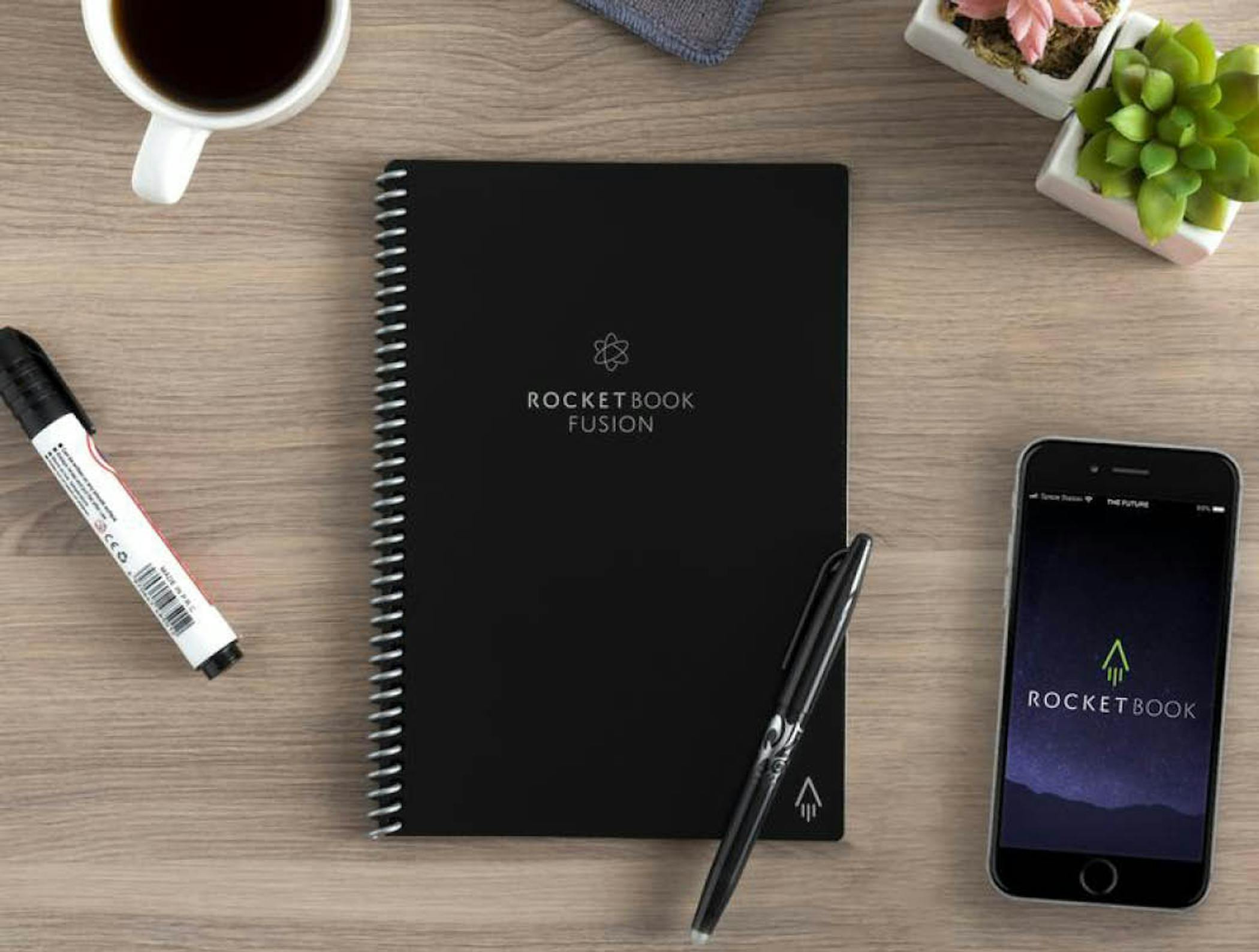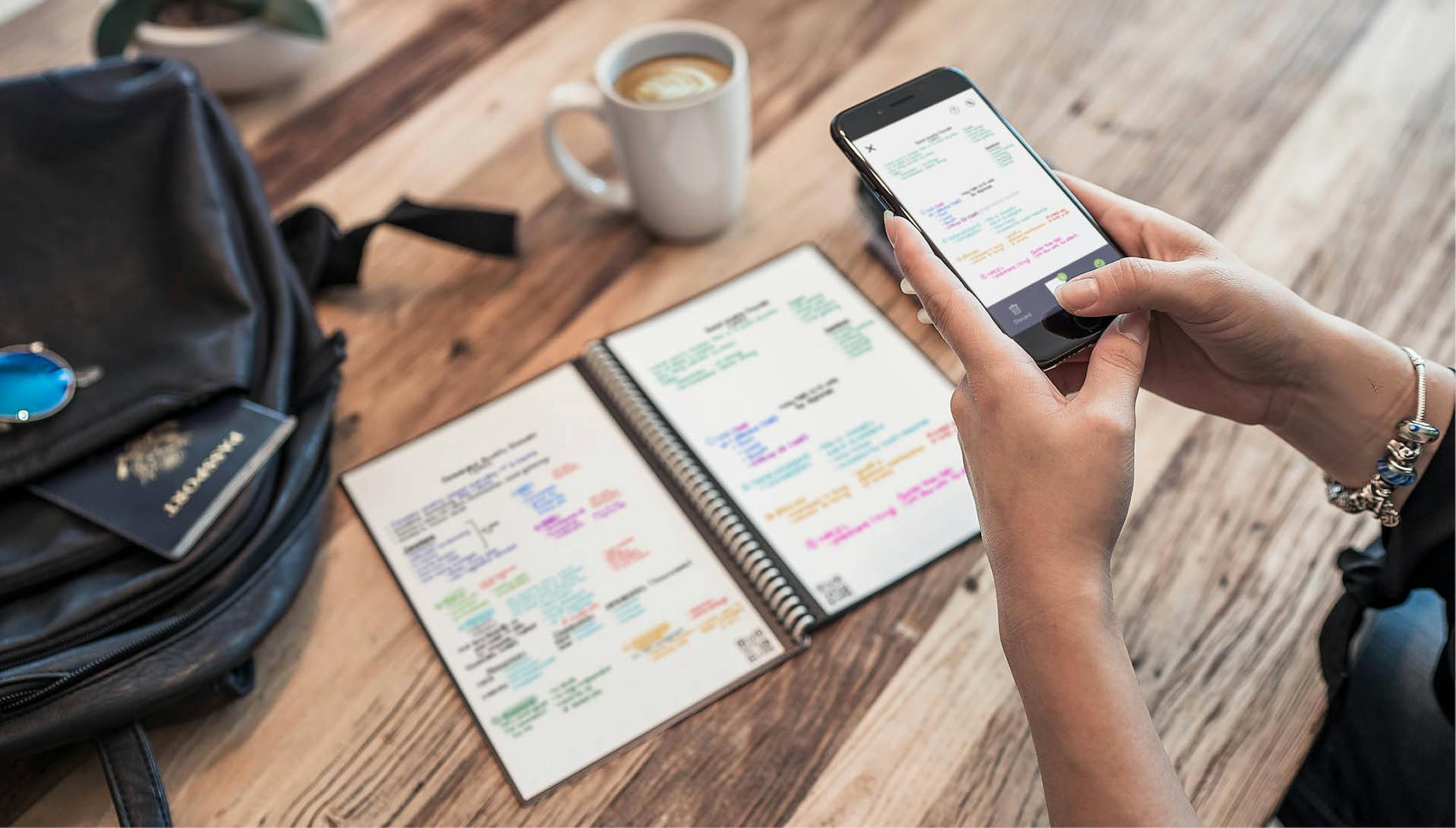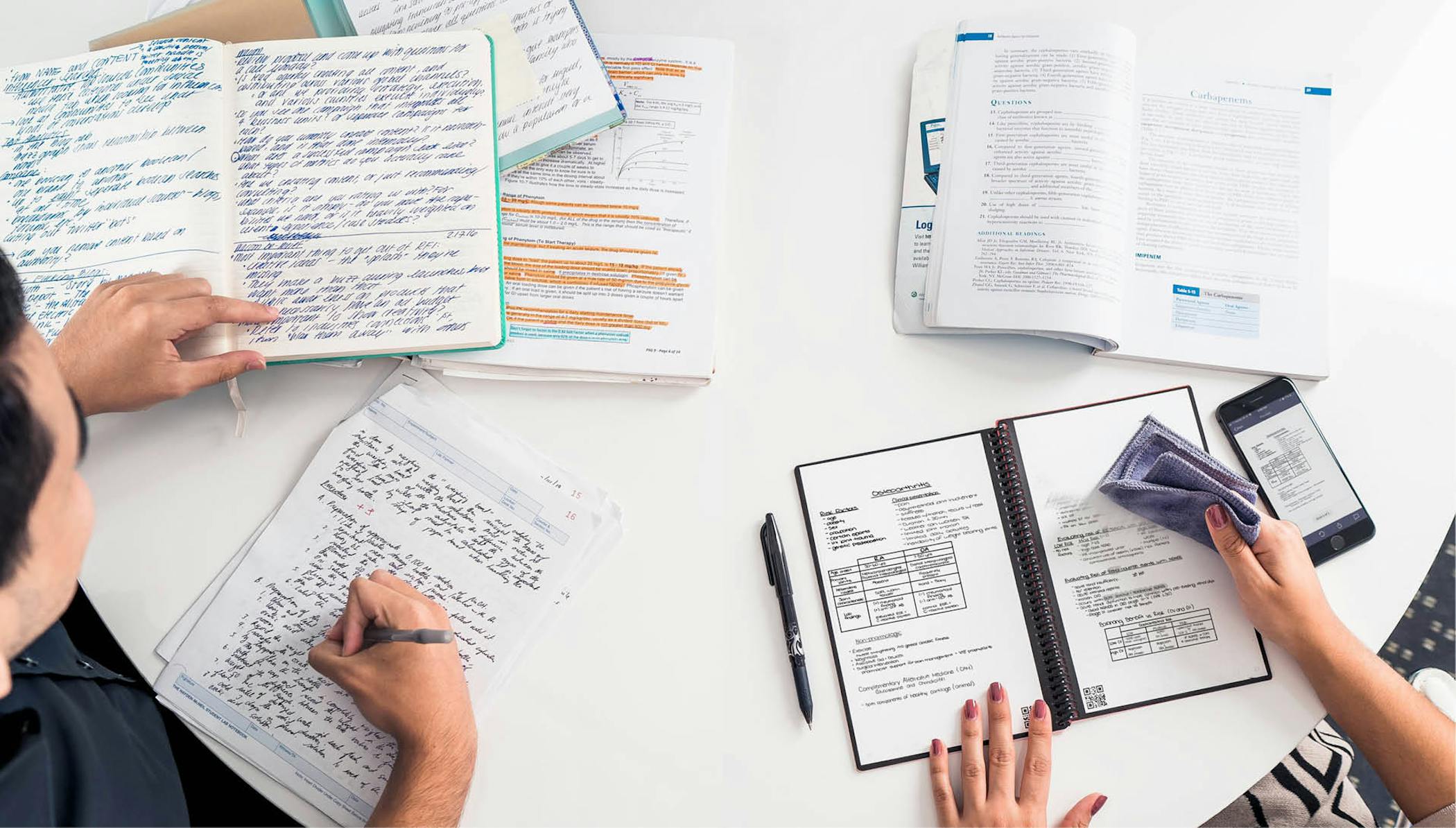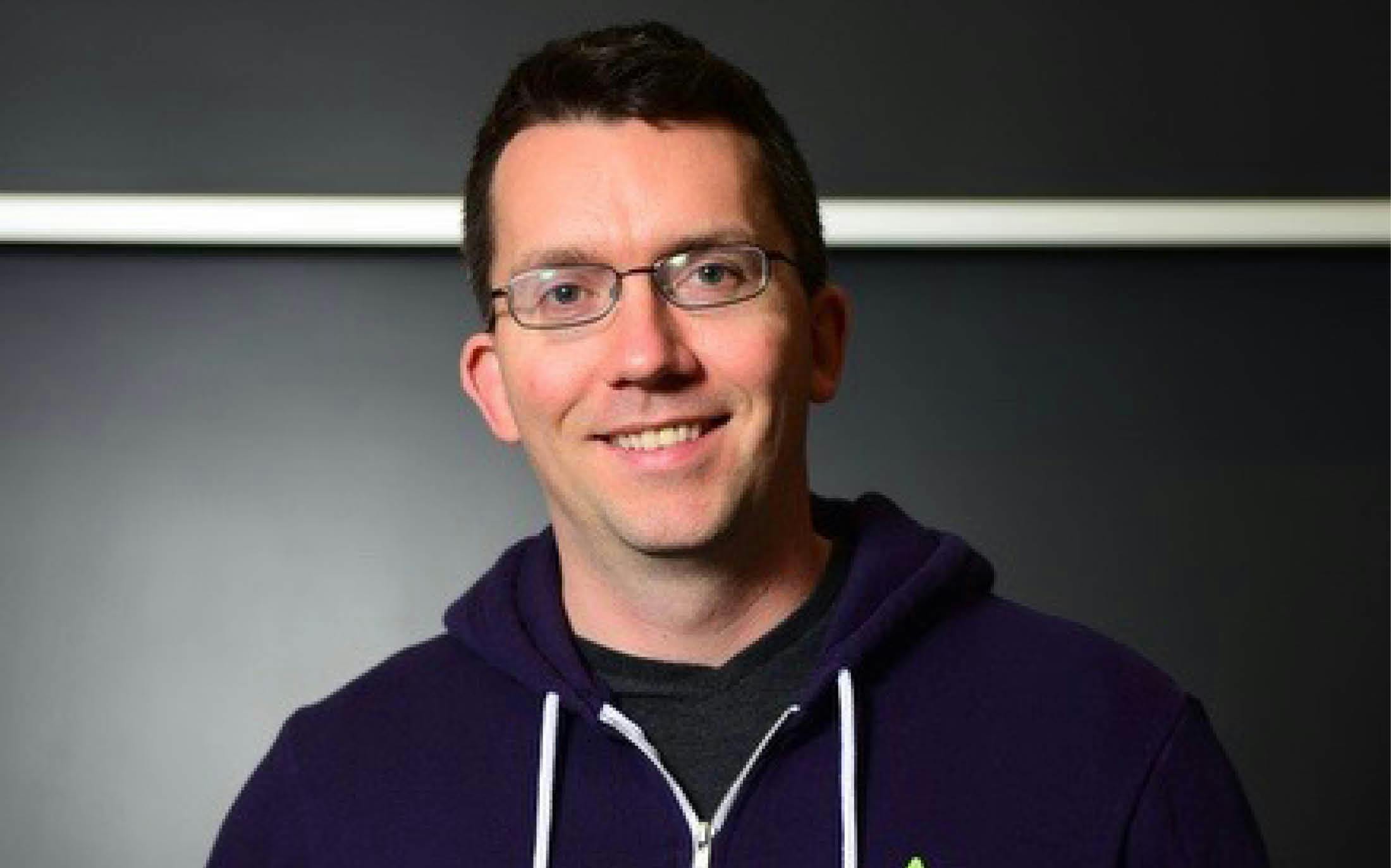“I remember going into a million-dollar sales meeting and realising I had the wrong notebook with me. I looked down at my notes, and they just weren’t there. The pit I felt in my stomach back then, I still feel today”.
Although it didn’t feel like it at the time, this was the moment that changed Joe LeMay’s life. Determined to find a better way to take and organise his notes, he began a journey that led to the creation of Rocketbook - a notepad with wipeable, reusable pages that also lets you snap photos of each page to automatically create organised digital backups.
The tech behind Rocketbook
Rocketbook notepads look like any other regular notebook, but they’re infused with hidden technology. Taking pictures of your pages through Rocketbook's app will scan them and send them to your cloud-based destination of choice, from Dropbox and Google Drive, to your inbox. Marking the special icons printed on each page let you automatically organise your notes by instructing the app where to send them, allowing you to file them by your preferred categories.
Backing up and organising natural handwritten notes to the cloud is an impressive feat in itself, but Rocketbook takes things further by also allowing you to completely wipe your handwritten notes and doodles, resulting in a completely blank notebook that’s ready to be filled once again, thanks to a combination of Pilot’s heat-sensitive Frixion pens, and Rocketbook’s specially-crafted paper. Original Rocketbooks could be wiped by placing them in a microwave, while the updated newer models require a simple wipe with a damp cloth.

We were fortunate enough to spend some time chatting to Rocketbook co-founder Joe LeMay about the journey that led to the creation of the world’s most advanced line of notepads. From microwaving books to his vision of the future, this is his story:
The most obvious question first - what’s wrong with typing up notes, or using a stylus?
I’m a tech guy with a background in software engineering, but I’m still very much a notebook/whiteboard guy. I find that’s true for most people. There’s something just… so human about getting ideas out of your head and onto paper. There’s nothing quite as natural, or as fluid. There’s even a study from Princeton which shows that the process of writing things by hand activates so much more of your brain compared to a keyboard. The group that wrote by hand retained more information.
Of course I tried digital pens and styluses, but as much as they try to mimic paper and pen, it’s just not the same. At the end of the day, it’s a plastic stick on a slab of glass, and another battery you need to worry about charging.
Tell us about the mistake that started this all
I was an account exec at Salesforce, and had a meeting which I’d prepared a lot of handwritten notes for. It was a big software deal in which I could potentially have sold another company a million dollars worth of software, and I’d prepared a lot for it. But when I got into the meeting, I realised I had the wrong notebook with me. That really stirred something in me. I had a really bad meeting, because of those missing notes, and that’s something that stuck with me.
How did the idea for Rocketbook start?
I knew I still wanted to write by hand. At first I tried different scanning apps and manually sending each shot to Dropbox, but it soon became a disorganised mess. The idea for Rocketbook came from a need to properly fill the gap between the physical handwritten world and my organised digital world where I keep things and collaborate with others.
I came up with a few concepts, and one thing that really stuck with me was the idea of a simple seven-icon system. You’d take notes on a page, and mark one of the seven symbols which represent any label you like. When you scan the page, it will automatically organise it to the relevant folder, without you having to do the ‘share button shuffle’. From there I knew that I wanted to make a physical notebook with smart functionality. And that’s when I bumped into my co-founder Jake Epstein.

How did you guys meet?
At a dive bar in Somerville, on the outskirts of Boston. We had a few beers and talked about the idea. Jake’s an inventor, an engineer. The problem and potential solution really clicked with him, and we started refining the idea, including thinking of ways we could make the notebook reusable.
We came up with the idea of using Pilot Frixion pens, which use disappearing heat-sensitive ink, and started working on creating a book that’s safe to go in the microwave. We had to come up with a book that would consistently work in different microwaves in a safe way, without it bursting into flames. We had to be careful - recycled paper, for example, was a bad idea, as sometimes they had little metal shavings in the pages. Since then, Rocketbook uses the same pens but we’ve advanced the paper so that instead of a microwave, you just need a little moisture and a cloth to wipe off the ink.
When did things really kick off?
We launched our crowdfunding campaign in March 2015. That first day, I think we took in around $8,000 in pre-sales, and around $10,000 on the second day, which was incredible. The next day was a Saturday, and we were getting ready to go home from LAUNCH festival, where we’d demoed the notebook. Suddenly our phones went berserk with hundreds of notifications from Indiegogo. It was crazy. We pulled in around $99,000 of pre-sales. We looked at each other and were like, ‘oh my god this is it’.
How important is the sustainable aspect of Rocketbook?
Initially I created this product because it solved a personal pain point and mattered to my career and day to day life. But then I realised it had the potential to save a tonne of trees. Until we came along, the notebook was a single-use product category. Now it’s durable, and can be used over and over again, and lasts a long time. The fact that we’re helping to eliminate waste is incredibly satisfying.

